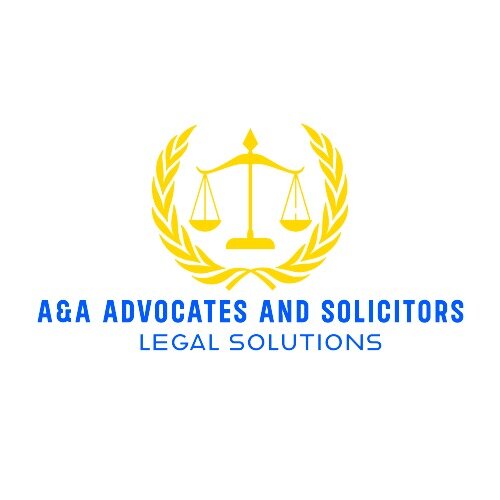Best Information Technology Lawyers in Ghana
Share your needs with us, get contacted by law firms.
Free. Takes 2 min.
Or refine your search by selecting a city:
List of the best lawyers in Ghana
About Information Technology Law in Ghana
Information Technology (IT) law in Ghana governs the use of electronic communications, data protection, cybercrime, intellectual property, and other legal issues related to technology. With the rapid advancements in IT, it is essential to understand the legal implications to navigate this complex field.
Why You May Need a Lawyer
There are various situations where you may require legal help in Information Technology in Ghana, such as resolving disputes over data breaches, drafting and negotiating IT contracts, protecting intellectual property rights, and ensuring compliance with IT regulations.
Local Laws Overview
Key aspects of local laws relevant to Information Technology in Ghana include the Data Protection Act, Electronic Transactions Act, Cybersecurity Act, and Copyright Act. These laws aim to regulate the use of technology, protect personal information, combat cybercrime, and safeguard intellectual property rights.
Frequently Asked Questions
1. What is the Data Protection Act and how does it affect me?
The Data Protection Act regulates the processing of personal data in Ghana to ensure the privacy and security of individuals' information. Organizations must comply with this law when collecting, storing, or using personal data.
2. How can I protect my intellectual property rights in Ghana?
You can protect your intellectual property rights through copyrights, trademarks, patents, and trade secrets. Consult a lawyer to understand the legal options available to safeguard your creations.
3. What are the penalties for cybercrimes in Ghana?
The Cybersecurity Act imposes penalties for cybercrimes such as unauthorized access to computer systems, data interference, and cyber fraud. Offenders may face imprisonment, fines, or both.
4. How can I ensure compliance with IT regulations in Ghana?
To ensure compliance with IT regulations in Ghana, organizations should conduct regular audits, implement security measures, train employees on data protection, and seek legal advice to navigate the complex legal landscape.
5. Can I transfer personal data outside of Ghana?
Transferring personal data outside of Ghana requires adherence to the Data Protection Act and obtaining consent from the data subjects. Consult a lawyer to ensure compliance with the law.
6. What are the legal considerations when drafting IT contracts?
When drafting IT contracts, ensure clarity on services, responsibilities, payment terms, data protection, intellectual property rights, dispute resolution mechanisms, and termination clauses. Seek legal advice to protect your interests.
7. How can I report a data breach in Ghana?
If you experience a data breach, report it to the Data Protection Commission and affected individuals promptly. Compliance with data breach notification requirements is essential to mitigate the impact on individuals and avoid legal repercussions.
8. Are electronic signatures legally binding in Ghana?
Electronic signatures are legally binding in Ghana under the Electronic Transactions Act. They are considered equivalent to handwritten signatures if certain requirements are met. Consult a lawyer to understand the legal validity of electronic signatures in your transactions.
9. What are the rights of consumers regarding online transactions in Ghana?
Consumers in Ghana have rights such as transparency in online transactions, protection of their personal data, the right to cancel contracts within a specified period, and recourse in case of disputes. Understanding these rights is crucial for both consumers and businesses.
10. How can I stay updated on IT laws and regulations in Ghana?
Stay informed about IT laws and regulations in Ghana by following updates from the Data Protection Commission, Ministry of Communications, and legal updates from reputable sources. Engaging with legal professionals specializing in IT law can also help you stay abreast of changes in the legal landscape.
Additional Resources
For further assistance with legal advice in Information Technology in Ghana, consider reaching out to the Data Protection Commission, Ghana-India Kofi Annan Centre of Excellence in ICT, or local law firms specializing in IT law.
Next Steps
If you require legal assistance in Information Technology in Ghana, it is advisable to consult with a lawyer who specializes in IT law. They can provide tailored advice, representation in legal proceedings, and help you navigate the legal complexities surrounding technology in Ghana.
Lawzana helps you find the best lawyers and law firms in Ghana through a curated and pre-screened list of qualified legal professionals. Our platform offers rankings and detailed profiles of attorneys and law firms, allowing you to compare based on practice areas, including Information Technology, experience, and client feedback.
Each profile includes a description of the firm's areas of practice, client reviews, team members and partners, year of establishment, spoken languages, office locations, contact information, social media presence, and any published articles or resources. Most firms on our platform speak English and are experienced in both local and international legal matters.
Get a quote from top-rated law firms in Ghana — quickly, securely, and without unnecessary hassle.
Disclaimer:
The information provided on this page is for general informational purposes only and does not constitute legal advice. While we strive to ensure the accuracy and relevance of the content, legal information may change over time, and interpretations of the law can vary. You should always consult with a qualified legal professional for advice specific to your situation.
We disclaim all liability for actions taken or not taken based on the content of this page. If you believe any information is incorrect or outdated, please contact us, and we will review and update it where appropriate.
Browse information technology law firms by city in Ghana
Refine your search by selecting a city.








